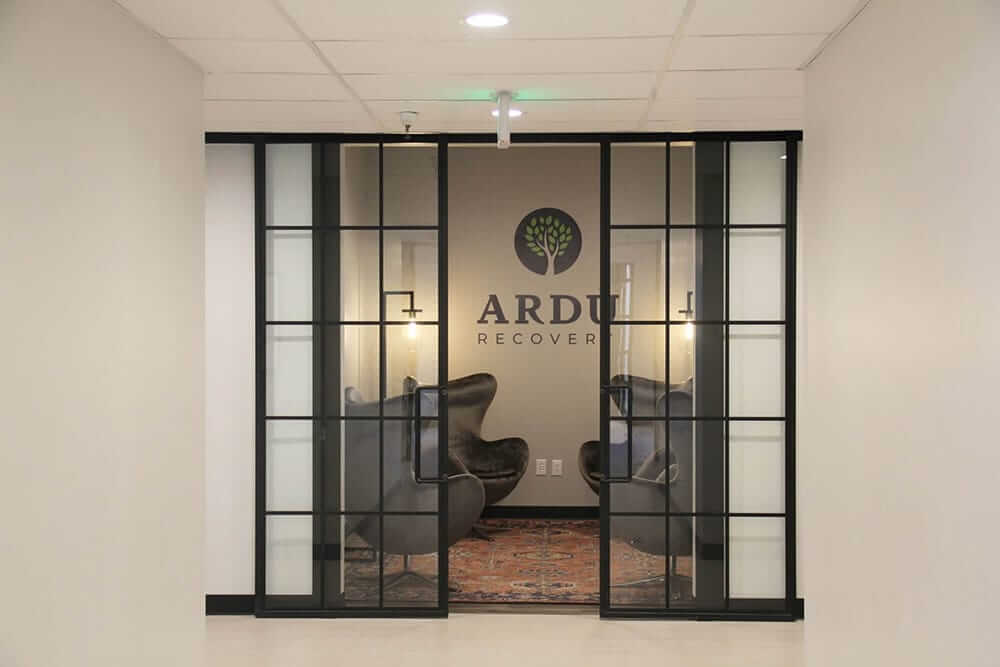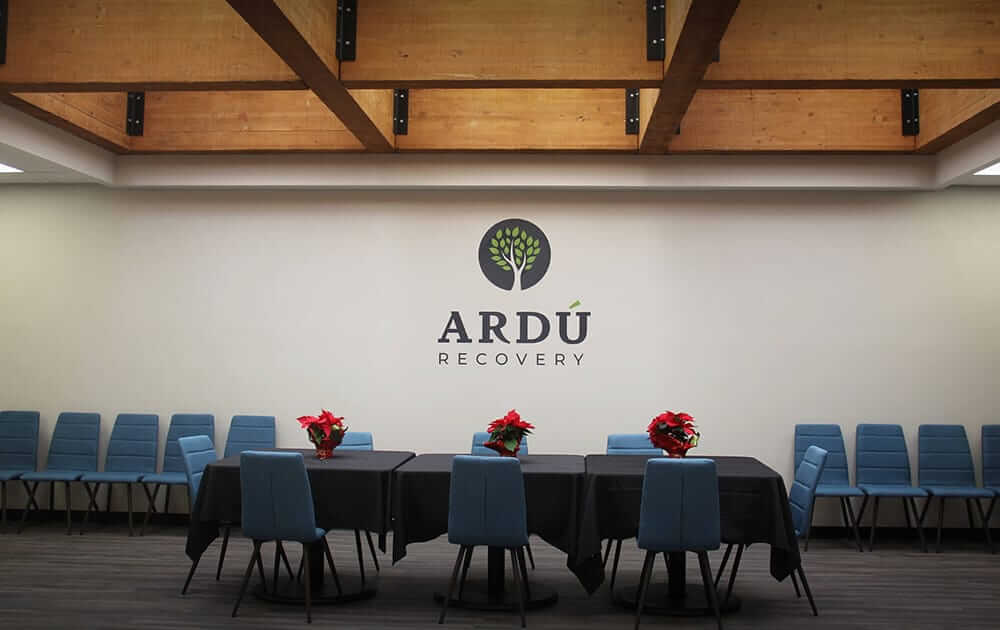Written by Brandon Okey. Mina Draskovic, B.Psy., reviewed this content for accuracy.
Alcohol consumption during pregnancy is a serious concern that can have lasting consequences for your baby. A 2020 study (Dejong, et. al.) provides evidence that about 1 in 10 pregnant women in the US admit to drinking. Among women who drink alcohol before pregnancy, about 87% quit, but 6.4% do not change their intake during pregnancy at all.
The effects of drinking range from subtle developmental issues to severe birth defects. The good news is that the earlier you quit, the better it is for your baby’s growth and development.
Ready to give your child the best start? Ardu is here to help you kick alcohol to the curb, with personalized alcohol rehab services that put you and your little one first. Our expert team has got your back every step of the way, from detox to long-term sobriety.
There’s no known safe amount of alcohol. Even a few alcoholic drinks could cause problems for your developing baby.
Dejong, et. al. remind us that Surgeon General Richard Carmona made a clear statement in 2005: no amount of alcohol is safe for pregnant women or those who might become pregnant. If you’ve been habitually drinking, the recommendation is to stop as soon as possible.
A 2021 study emphasizes that even relatively low levels of alcohol increase the risk of fetal alcohol syndrome (FAS) and that current medical recommendations advise complete abstinence from alcohol during pregnancy and conception attempts. Fetal alcohol syndrome is one of the most frequent and severe consequences of prenatal alcohol exposure.
Every pregnancy is different, and healthcare providers can’t predict exactly how alcohol might affect your baby. While some children exposed to alcohol before birth experience severe problems, others might remain unaffected, but there’s no way to know in advance which outcome you’ll get. Why take that chance?
The safest bet is to avoid alcohol completely when you’re pregnant or trying to get pregnant. Giving your baby the best possible start is worth skipping that glass of wine. It’s not always easy to quit, even when you’re pregnant, but Ardu has the expertise and support to help you quit.
Don’t hesitate to reach out to Ardu and give your baby and yourself a healthier start.
Alcohol consumption during pregnancy can have wide-ranging and severe consequences for the developing fetus. As a potent teratogen, alcohol can disrupt fetal development at every stage, from conception to birth.
Before going into details, here are ten ways in which alcohol can negatively impact pregnancy:
Alcohol poses serious risks to both mother and child throughout pregnancy. The danger escalates with each trimester.
The first trimester spans weeks 1–12 of pregnancy and is a critical period for fetal development. During this time, the foundation for all major organs and body systems is laid, including the brain, heart, and spinal cord. This rapid cell division and organ formation make the developing embryo extremely vulnerable to external influences.
Alcohol consumption during the first trimester may have severe consequences. Research suggests that even moderate alcohol consumption during early pregnancy can lead to growth and developmental abnormalities in infants.
Alcohol use in the first trimester also harms the mother. It often worsens morning sickness and fatigue, interferes with nutrient absorption, and increases the risk of dehydration. Consuming alcohol during pregnancy can also heighten anxiety and make it harder to establish healthy pregnancy habits.
The second trimester, spanning weeks 13 to 26, is often called the “golden period” of pregnancy. During this time, your baby goes through some amazing changes. Their organs continue to develop and mature, and they start to look human. Your little one begins to move around, and you might even feel those first exciting kicks. This is also when the baby’s sex becomes visible on ultrasounds, and their unique fingerprints form.
Even though your baby’s major organs are formed, drinking during this stage can still do some real damage to your growing bun in the oven.
It’s never too late to make a positive change for your baby’s health. The sooner you stop drinking during pregnancy, the better chance you give your little one to catch up on growth and development.
The third trimester, from week 27 until birth, is when your baby packs on the pounds and gets ready for life outside the womb. Their brain is developing rapidly, forming billions of neurons and connections. Their lungs are maturing, while your little one is fine-tuning their senses, developing sleep patterns, and even practicing breathing movements.
Here’s the damage alcohol can do during the final weeks of pregnancy:
Your baby is growing fast in these final weeks, and every drink hinders their development. It’s not too late to make a positive change.
Ardu offers compassionate, specialized alcohol detox and rehabilitation services for anyone struggling with dependency, including expectant mothers. Our experienced team provides the support you need to protect your health and your baby’s future. You’ll benefit from a comprehensive approach that includes medically supervised detox, individualized counseling, group therapy, and holistic treatments to help you build a strong foundation for lasting recovery.








“I loved every moment I spent at Ardu. I really got the therapy and support I have been needing so badly over the years. They are so kind and loving that I came back to work and I love it even more as an employee. The environment is so peaceful. It’s a beautiful place for healing.”
Many people believe that moderate drinking is beneficial for health, and some even extend this idea to pregnant women. The scientific consensus is clear: there is no known safe amount of alcohol during pregnancy.
Despite this, myths and misconceptions are often passed down through generations or spread through social circles. A 2022 study reveals that there’s a widespread lack of awareness about the harmful effects of prenatal alcohol exposure, with many people not realizing that even small amounts can significantly increase the risk of fetal alcohol syndrome and other more dangerous consequences.
The study also maintains that these misconceptions are compounded by societal pressure to drink and mixed messages from media and sometimes even healthcare providers.
Let’s debunk 10 of the most common misconceptions about alcohol use during pregnancy:
Beyond its harmful effects on the developing baby and the health of the expecting mother, alcohol poses serious risks to the overall sexual and reproductive health of both women and men.
If you’re trying to conceive, alcohol may hinder your chances of pregnancy. Let’s look at how alcohol can hinder fertility and make it harder to conceive.
Alcohol harms nearly every part of your body, from your brain and liver to your reproductive system. Its effects extend far beyond fertility, making it harder to conceive and maintain a healthy pregnancy. If you’re trying to start a family, avoid alcohol to protect your body and improve your chances of giving birth to a healthy baby.
Alcohol can have a profound negative impact on your ability to have a healthy pregnancy. Our rehab center in Provo, Utah helps you recover from alcohol addiction and improve your chances of having a healthy pregnancy. We provide personalized care and support to help you regain control of your health and prepare for a successful pregnancy.
With expert staff and a range of therapy options, we’re here to guide you every step of the way toward recovery and a brighter future. Here’s why Ardu is the best place to begin your recovery journey:
The first step in addressing alcohol dependence is safely managing detox. At Ardu, we offer both medical and holistic detox, supervised by compassionate experts who prioritize your well-being. Once detox is complete, we move into rehabilitation, where our comprehensive treatment programs help you overcome alcohol abuse and addiction.
We use evidence-based therapies to uncover the underlying causes of your alcohol dependence and equip you with the tools needed to achieve lasting recovery. At Ardu, we focus on improving your overall health—mind, body, and spirit—empowering you to achieve lifelong sobriety and prepare your body for a healthy pregnancy.
Ready to take control of your health and recovery? Call us today to learn how we can support you in overcoming alcohol addiction.

Brandon Okey is the co-founder of Ardu Recovery Center and is dedicated to empowering people on their journey to sobriety.
Alcohol can begin affecting the baby as early as the first few weeks of pregnancy, even before many women realize they are pregnant. During this time, the baby’s vital organs, brain, and nervous system start developing, and alcohol exposure can interfere with these critical early stages.
Even small amounts of alcohol increase the risk of fetal alcohol effects, which include physical, cognitive, and behavioral developmental issues. Alcohol-related birth defects and neurodevelopmental disorders can occur from any stage of exposure, which is why you should avoid drinking entirely once trying to conceive or as soon as pregnancy is suspected.
Drinking alcohol during the first four weeks of pregnancy still poses risks to the developing baby, but many women may not realize they are pregnant this early. While the risk of fetal alcohol effects exists, the likelihood of severe harm may vary depending on the amount and frequency of alcohol consumed. Stop drinking immediately upon discovering pregnancy and consult with a healthcare provider to discuss concerns and appropriate care.
You should stop drinking alcohol as soon as you decide to try for a baby or immediately after learning you’re pregnant. Alcohol can affect the unborn child at any stage of pregnancy, but the earlier you stop, the better. Alcohol-related birth defects and developmental issues can occur at any point, including the first trimester when crucial brain and organ development takes place.
There is no safe level of alcohol during pregnancy, so avoiding it altogether is the best way to protect your baby from potential harm.
Many women may consume alcohol before realizing they are pregnant. If this happens, stop drinking immediately upon learning of the pregnancy. While early exposure to alcohol can increase the risk of fetal alcohol spectrum disorders and other complications such as poor growth, premature birth, or cognitive development issues, it’s never too late to improve your baby’s health. Avoid alcohol for the rest of your pregnancy and speak with a healthcare provider to discuss any concerns.
There is no safe amount of alcohol, including wine, when you’re pregnant. Alcohol passes through the placenta to the baby, and even small amounts can disrupt fetal development. While some may believe that light drinking is harmless, studies show that any level of alcohol exposure increases the risk of fetal alcohol spectrum disorders, intellectual disabilities, and physical abnormalities. The safest option is to avoid alcohol completely throughout your pregnancy to protect your baby from harm.
During the first trimester, some women may experience aversions to alcohol, particularly because of nausea or changes in taste and smell caused by hormonal shifts. Whether the mother develops an aversion to alcohol or not, alcohol is equally dangerous for the fetus.
Alcohol can still cause significant harm to the fetus in the first trimester, a critical time for organ and brain development. This can cause heart defects, developmental disabilities, and other alcohol-related neurodevelopmental disorders.
It is normal for some women to miss alcohol during pregnancy, especially if it was a regular part of social activities or relaxation routines before becoming pregnant. The harm alcohol can cause to an unborn child far outweighs the temporary discomfort of missing it. There are many safe and healthy alternatives to manage stress and unwind during pregnancy, such as exercise, meditation, or mocktails. Try to focus on the health of both you and your baby to ease the transition and support a healthier pregnancy.
DEJONG, K., OLYAEI, A., & LO, J. O. (2019). Alcohol Use in Pregnancy. Clinical Obstetrics and Gynecology, 62(1), 142. https://doi.org/10.1097/GRF.0000000000000414
Popova, S., Dozet, D., Shield, K., Rehm, J., & Burd, L. (2021). Alcohol’s Impact on the Fetus. Nutrients, 13(10). https://doi.org/10.3390/nu13103452
Terracina, S., Tarani, L., Ceccanti, M., Vitali, M., Francati, S., Lucarelli, M., Venditti, S., Verdone, L., Ferraguti, G., & Fiore, M. (2024). The Impact of Oxidative Stress on the Epigenetics of Fetal Alcohol Spectrum Disorders. Antioxidants, 13(4). https://doi.org/10.3390/antiox13040410
Sebastiani, G., Borrás-Novell, C., Casanova, M. A., Tutusaus, M. P., Martínez, S. F., Gómez Roig, M. D., & García-Algar, O. (2018). The Effects of Alcohol and Drugs of Abuse on Maternal Nutritional Profile during Pregnancy. Nutrients, 10(8). https://doi.org/10.3390/nu10081008
Chen, J. A., Maier, S. E., Parnell, S. E., & West, J. R. (2003). Alcohol and the Developing Brain: Neuroanatomical Studies. Alcohol Research & Health, 27(2), 174-180. https://www.ncbi.nlm.nih.gov/pmc/articles/PMC6668892/
Hanson, J. W., Streissguth, A. P., & Smith, D. W. (1978). The effects of moderate alcohol consumption during pregnancy on fetal growth and morphogenesis. The Journal of Pediatrics, 92(3), 457-460. https://doi.org/10.1016/S0022-3476(78)80449-1
Pielage, M., Marroun, H. E., Odendaal, H. J., Willemsen, S. P., J. Hillegers, M. H., P. Steegers, E. A., & Rousian, M. (2023). Alcohol exposure before and during pregnancy is associated with reduced fetal growth: The Safe Passage Study. BMC Medicine, 21. https://doi.org/10.1186/s12916-023-03020-4
Effect of alcohol during pregnancy: a public health issue
Scott, Sonya, et. al.
The Lancet Public Health, Volume 8, Issue 1, e4 – e5
Popova, S., Dozet, D., Laboni, S. A., Brower, K., & Temple, V. (2022). Why do women consume alcohol during pregnancy or while breastfeeding? Drug and Alcohol Review, 41(4), 759-777. https://doi.org/10.1111/dar.13425
Does drinking make you age faster?
Are the effects of alcohol reversible?
Symptoms of alcohol-induced brain damage
What is the link between alcohol and hypersexuality?